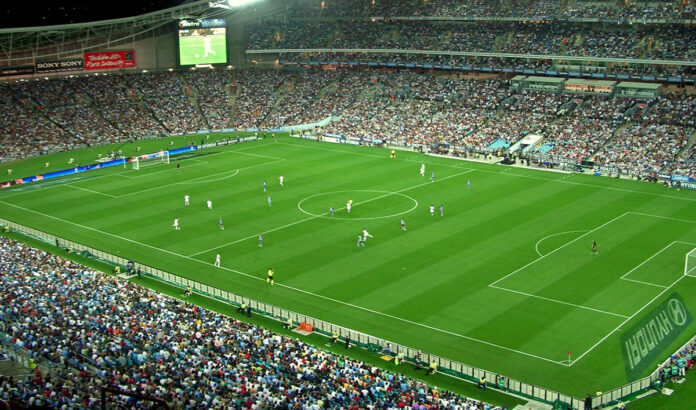Indoor Soccer Overview
Indoor soccer is a modified version of football. It is also called arena soccer or fast football. Players compete on hardcourt surfaces inside walled arenas.
This sport started to solve a problem. Snow made outdoor games hard during the winter months. Indoor soccer allows matches to continue year-round.
It has become a popular alternative to traditional football. The walls keep the ball in play, speeding up the action. This makes the game faster and more exciting for players and fans alike (Wikipedia).
Introduction to Indoor Soccer
Key Differences from Outdoor Soccer
Indoor and outdoor soccer differ mainly in the playing surface. Indoor soccer happens on enclosed hard courts. This leads to faster and more dynamic play. The smaller area in indoor games forces quick decisions. Players need better ball control.
The number of players also varies. Indoor soccer has smaller teams. Fewer players make the game more intense. Players need agility and adaptability. The fast-paced environment adds excitement to every moment.
For detailed information on the rules and regulations governing indoor soccer, including field sizes and player numbers, visit our comprehensive guide on soccer rules.
Indoor soccer offers a fast-paced and thrilling version of the sport. Players face quick challenges that test their skills and teamwork. The smaller field makes the game more intense and exciting.
Benefits of Indoor Soccer
Skill Development in Indoor Soccer
Additionally, playing with a heavier ball in the indoor setting can enhance players’ strength, leading to improved passing capabilities and overall performance on the field (Sport Resource Group).
Physical Fitness and Team Dynamics
In addition to skill development, indoor soccer places a significant focus on enhancing physical fitness and team dynamics. The fast-paced nature of the game encourages players to constantly move, sprint, and engage in short, quick interactions and passes due to the smaller turf size.
These interactions improve team dynamics. They build mutual understanding and sharpen passing skills. This helps in both indoor and outdoor soccer games.
Indoor soccer boosts individual skills. Players learn the value of clear communication. They understand the need for cooperation and teamwork. The fast-paced game pushes players to rely on each other. This builds unity and collaboration, both crucial for success.
Indoor soccer helps players elevate their game. It strengthens their physical abilities. It also improves interpersonal skills. For soccer enthusiasts, it offers a rewarding experience. It encourages growth and builds camaraderie on the field.




